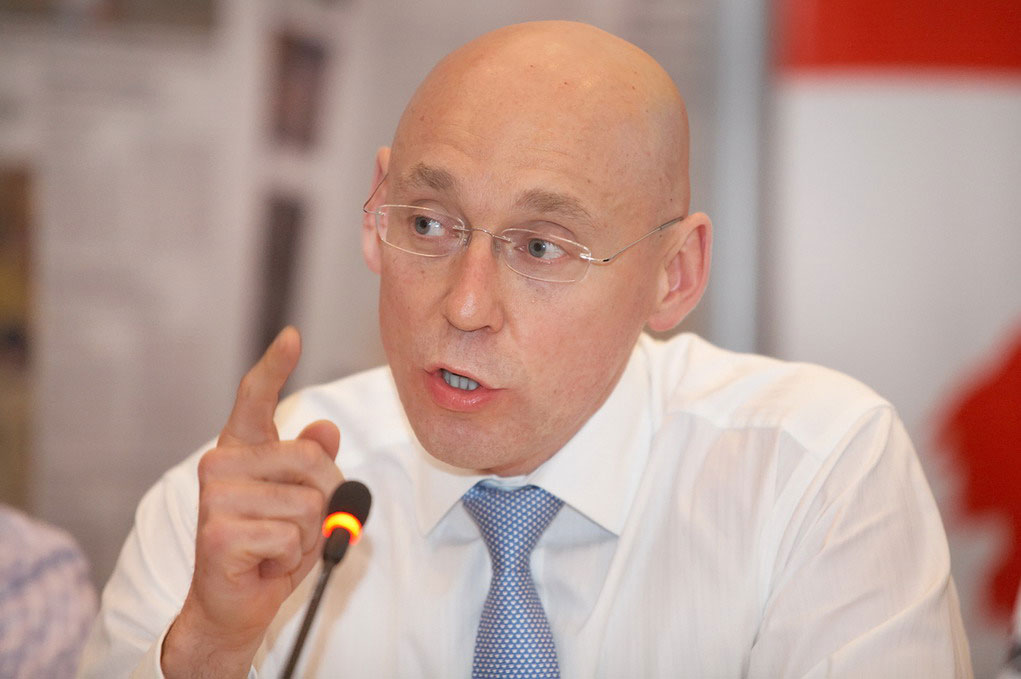The capacity of the frequencies of mobile communication will run out by 2020. Necessary to build 5G networks

Valery Yermakov
Vice-President of Rostelecom for work with corporate and government segments Valery Yermakov said that by 2020 mobile operators will fully understand the capacity of communication frequencies currently used, according to Vedomosti. The statement was made at the round table at the Information Technology Committee of the Association of Managers of Russia.
The capacity of the frequencies currently used is limited. At the same time, the avalanche-like growth of the popularity of mobile Internet and increasing requirements for the channel width on the part of subscribers will lead to their exhaustion in a few years. The only way out for telecom operators is to build new generation networks - 5G.
In 2011, Soyuz LTE estimated investment in the construction of fourth-generation networks at 85.7 billion rubles for each major operator in the country. According to Yermakov, the construction of 5G networks will cost 5-10 times more expensive, but he did not mention the specific amounts. In any case, the message is obvious: the operators now do not have such huge sums for investments in infrastructure, not only because of the economic situation, but also because of other obligations imposed on them for the implementation of the law.
Another problem of 5G networks is the need to build not only communication towers, but also ground infrastructure. Theoretically, the fifth generation networks will provide data transmission channels up to 7 Gb / s wide. For its maintenance, fiber optic lines will be required to each 5G base station.
According to the vice-president of Rostelecom, in the light of a combination of factors, it is possible that a unified infrastructure operator will emerge that will single-handedly deploy 5G networks in Russia and provide telecom operators with access to them.
In contrast to Yermakov, the operators do not express concern, while Tele2 predicts the start of construction of the fifth generation networks only in 2021. MegaFon representatives say that there should be no problems with modernization: the company's specialists are already guided by the alleged standards of 5G networks (the format has not yet been ratified by the International Telecommunications Union) and when they are deployed they will be incorporated into the existing infrastructure of the operator. During the construction of next-generation networks, spending will be distributed over the long term, which eliminates the “stressful” scenario for the operator with the need for a one-time infusion of multi-billion infrastructure investments.
It is expected that the first 5G-networks will be built in regions with high demand - in capitals and other major cities of the country. The universal need for 5G is not there yet and is not foreseen in the near future. It is worth noting that LTE networks still constitute only half of the infrastructure of telecom operators: in many regions there is no load for it, plus the popularity of GSM format devices. Although LTE networks (and in the future, 5G networks) support data transmission in GSM format, a total transition of operators only to the latest standards, even after the departure of devices that support only the GSM format, is not expected. The reason is simple: any device with LTE support can transmit voice data, which still forms more than half of the revenue of cellular operators, using a GSM signal, while maintenance of this infrastructure is much cheaper, and coverage of one tower is much more than 3G or LTE.
